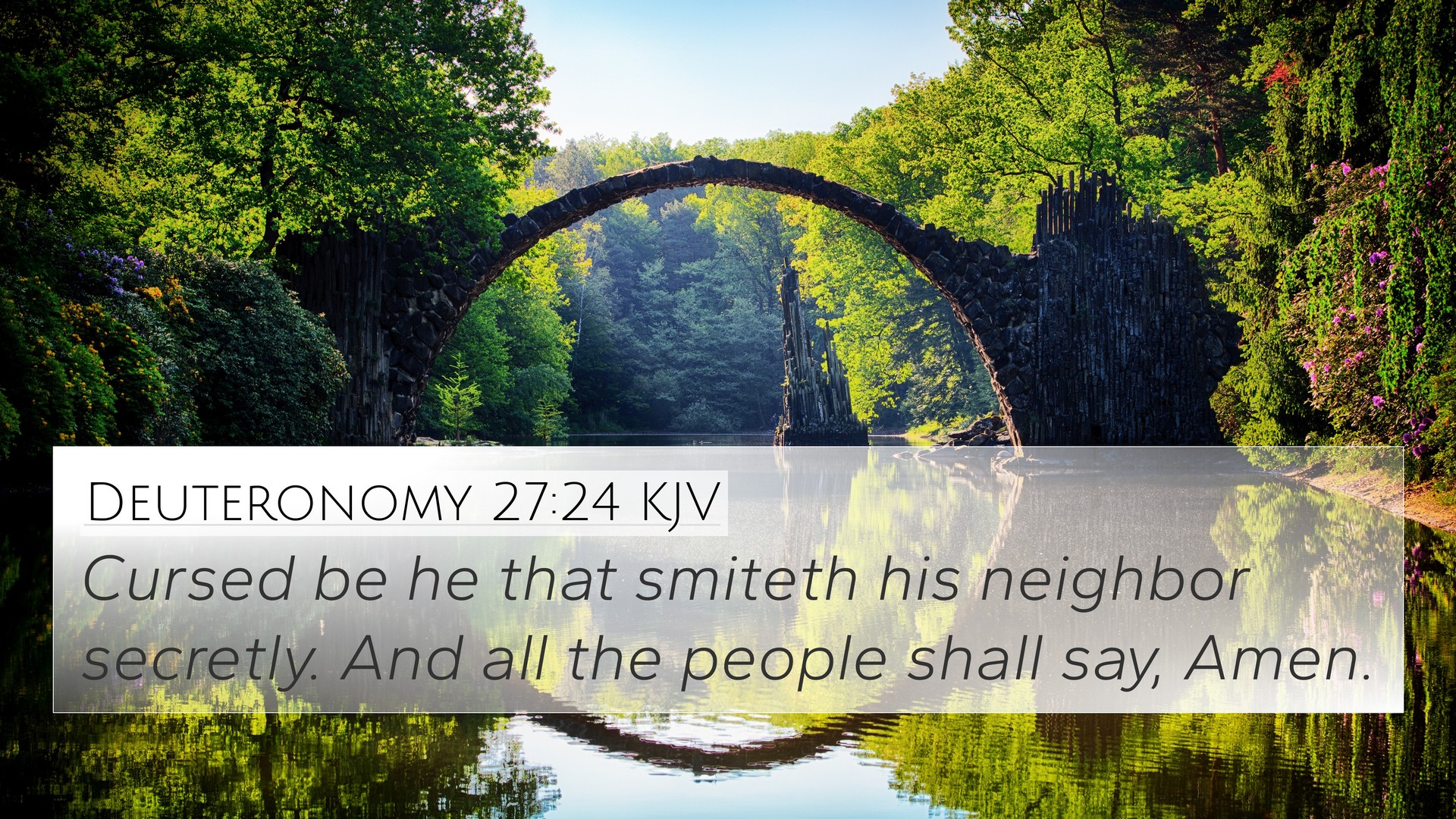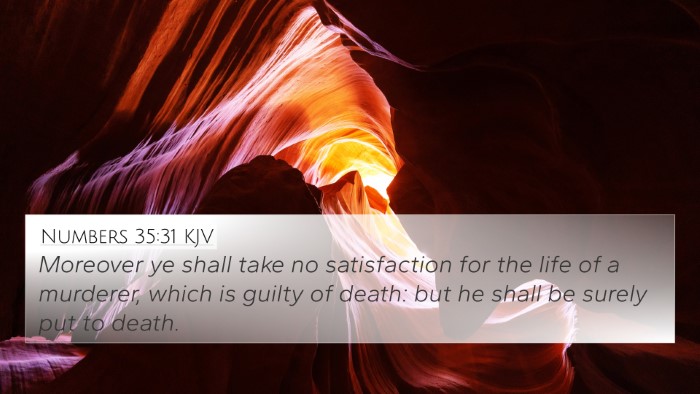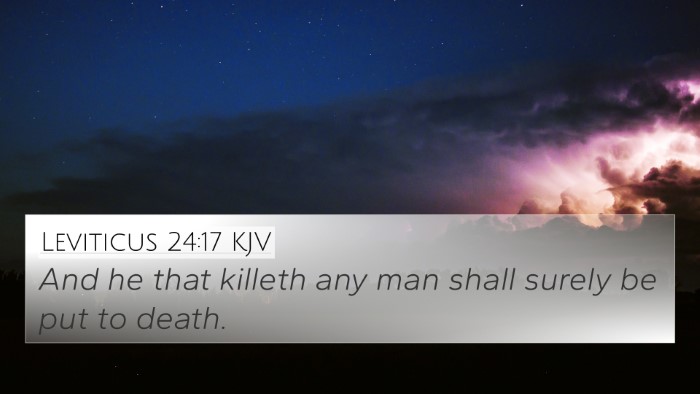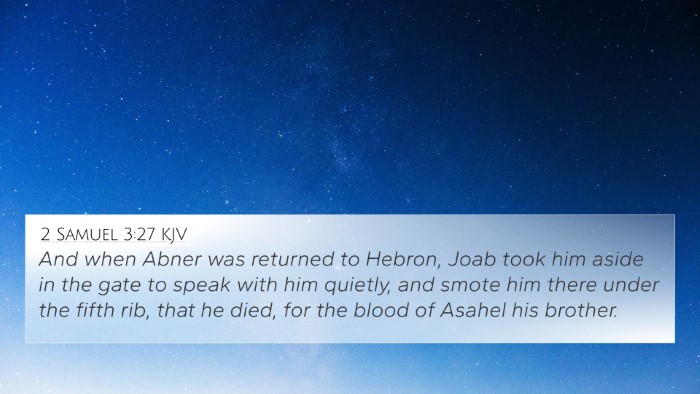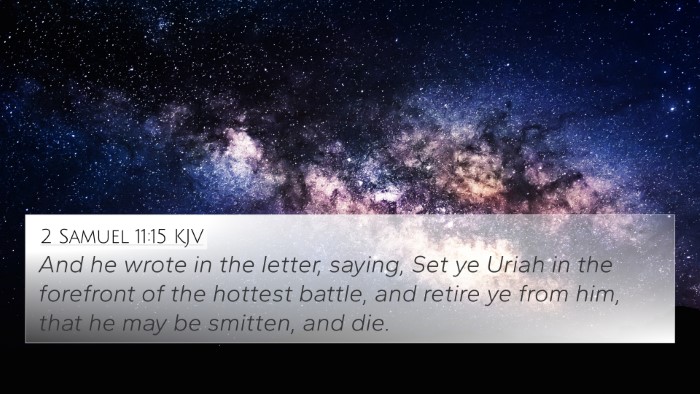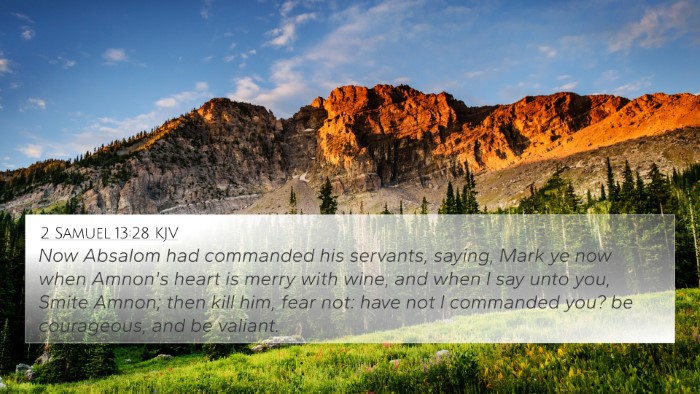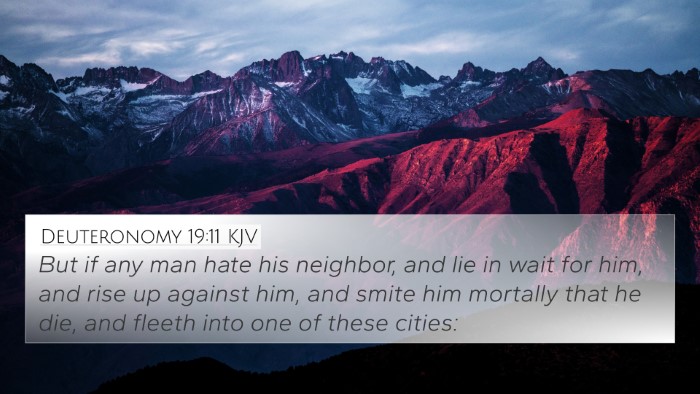Deuteronomy 27:24 - Summary and Commentary
Verse Context: Deuteronomy 27:24 states, "Cursed be he that smites his neighbor secretly. And all the people shall say, Amen." This verse is part of a broader section in Deuteronomy where the Israelites are reminded of the curses upon those who violate God’s commandments.
Meaning and Interpretation
This verse addresses the seriousness of treachery and deceit among individuals. The act of striking a neighbor secretly implies a betrayal of trust and community, highlighting the moral accountability expected within Israelite society. Such actions are met with a curse, reinforcing the importance of integrity and the repercussions of sin.
Insights from Commentaries
- Matthew Henry: Henry emphasizes that this command serves to protect the innocent and promote justice in community interactions. The secrecy of the act makes it more heinous, illustrating that God sees all deeds, whether hidden or overt.
- Albert Barnes: Barnes notes the societal implications of this curse, stressing that the community's acknowledgment of the curse ("Amen") underscores collective responsibility. It shows that the consequence of individual actions reverberates through the community, fostering a culture of accountability.
- Adam Clarke: Clarke interprets this as a warning against maliciousness and underscores the fact that such hidden acts provoke divine displeasure. He highlights the theological significance of communal response to sin, noting that moral failure is not just a personal failing but a societal issue.
Cross-References
Deuteronomy 27:24 can be linked to several other Bible verses that highlight similar themes of justice, community integrity, and hidden sins:
- Exodus 20:13: "Thou shalt not kill." - Emphasizes the sanctity of life and the moral obligation not to harm others.
- Proverbs 10:18: "He who hides hatred has lying lips, and he who spreads slander is a fool." - Addresses the danger of hidden malice.
- Matthew 5:21-22: Jesus expands on the command against murder, highlighting anger and insults as worthy of judgment.
- James 4:11: "Speak not evil one of another, brethren." - Similar themes of community ethics and neighborly conduct.
- 1 Corinthians 5:13: "But them that are without God judgeth." - Paul addresses wrongful conduct within the church community.
- Galatians 5:15: "But if ye bite and devour one another, take heed that ye be not consumed one of another." - Warning against destructive behaviors among believers.
- Romans 12:19: "Avenge not yourselves." - God's prohibitions against personal revenge and the importance of justice.
Thematic Connections
This verse connects deeply with themes present throughout Scripture regarding kinship, justice, and accountability. The recurring motifs include:
- Justice and Retribution: Many scriptures underscore God’s role as the ultimate judge and the importance of lawful treatment of others.
- Community Responsibility: Biblical texts often highlight the interdependence of community members in maintaining moral standards.
- Hidden Sins and Accountability: A consistent theme throughout both the Old and New Testaments stresses that God sees and judges hidden acts against moral law.
Conclusion
Deuteronomy 27:24 serves as a powerful reminder of the moral and communal obligations of individuals. The call for a curse on those who sin secretly encourages believers to uphold integrity and fosters a society based on trust and righteousness. Through careful study of cross-references and the insights of respected commentators, the verse's meaning broadens, offering rich theological understanding relevant across various contexts.
For Further Study: Understanding the cross-references and thematic connections can deepen one's grasp of the complexities present within biblical texts, making the study of Scripture not only a personal journey but also a communal exploration.
